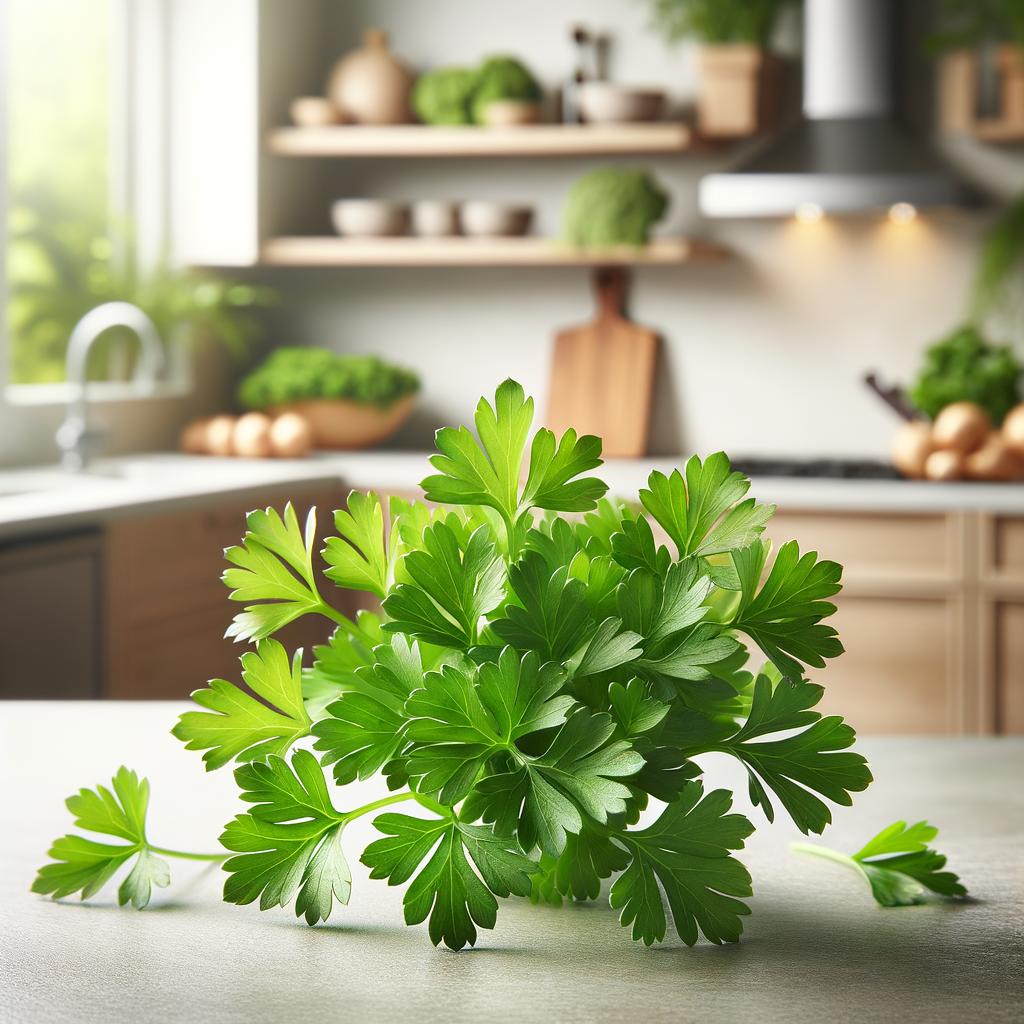Parsley

Description Parsley, a vibrant green herb, adorns our plates and tantalizes our palates with its fresh, slightly peppery flavor. Its leaves, either flat or curly depending on the variety, are finely divided and arranged in a rosette formation, creating a lush, bushy appearance. The texture of parsley is crisp, and its flavor profile is a unique blend of light spiciness and subtle bitterness, with a refreshing aftertaste that cleanses the palate. What sets parsley apart from its leafy counterparts is its remarkably resilient nature, retaining its flavor and color even when cooked.
Primary Uses Parsley is a culinary chameleon, finding its place in a myriad of dishes across various cuisines. It's commonly used as a garnish, adding color and freshness to everything from pasta to potatoes. In Mediterranean cuisine, it's a key component in tabbouleh, a bulgur wheat salad, while in French cuisine, it forms part of the classic 'bouquet garni' and 'fines herbes' mixtures used in soups and sauces. Beyond its culinary uses, parsley is also valued for its medicinal properties, being rich in vitamins and used traditionally as a digestive aid and breath freshener.
History The story of parsley stretches back to the ancient Greeks, who didn't eat it but instead used it to crown victors of athletic games, associating it with Hercules and strength. It was also intertwined with death and oblivion in their mythology. However, the Romans started the tradition of eating parsley and it was they who first used it as a garnish. Over time, parsley's use has evolved from a mere decorative element to an indispensable culinary ingredient. One folklore tells of parsley seeds taking seven years to germinate, as they had to travel to hell and back seven times before sprouting, adding a touch of mystique to this humble herb.
Nutritional Information Nutritionally, parsley is a powerhouse. It's packed with vitamins A, C, and K, and contains a healthy dose of folate and iron. Its high vitamin K content promotes bone health, while its antioxidants, like flavonoids and Vitamin C, support the immune system. Parsley also contains a unique compound called apigenin, which has been studied for its potential cancer-fighting properties. Compared to similar herbs, parsley stands out for its higher vitamin and mineral content, making it a valuable addition to any meal. So, the next time you see a sprig of parsley on your plate, remember, it's not just a garnish, it's a testament to a rich history and a powerhouse of nutrition.

